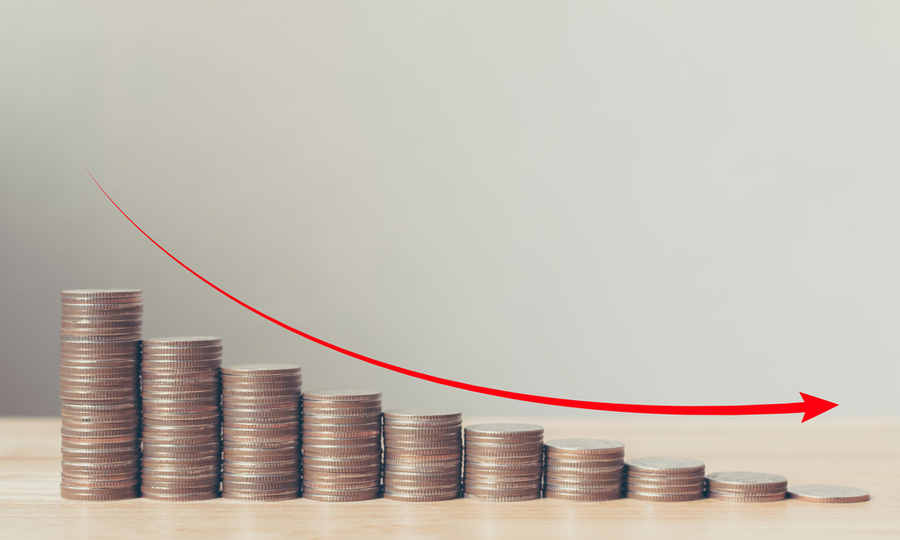I WANT
RELATED LINKS
I WANT
RELATED LINKS
RELATES LINKS
I WANT
RELATES LINKS
Services
Related Links
Use and Management of Cookies
We use cookies and other similar technologies on our website to enhance your browsing experience. For more information, please visit our Cookies Notice.
Use and Management of Cookies
We use cookies and other similar technologies on our website to enhance your browsing experience. For more information, please visit our Cookies Notice.
- Personal Banking
- Stories & Tips
- When is the right time to sell your investment?
- Personal Banking
- ...
- When is the right time to sell your investment?
When is the right time to sell your investment?
A frequently asked question seeks to know when the time is right for selling an investment. Many investors don’t have a plan to sell or don’t have any idea about the right time to sell an investment after holding it for a long period of time.
The right time to sell an investment is a personal decision. There is no fixed rule or success formula because nobody can precisely predict future investment value. Although they may face the same situation, different investors may arrive at different decisions. This article offers some guidelines to support your decision about the right time to sell an investment.

When you have reached your profit goal
If you have set a return goal for the investment, for example when your return reaches 20% or 30%, you will sell it. Many investors prefer to sell only the profitable portion and keep the principal amount for further investment. This is a good strategy when the market is trending upward. However, if your goal is to realize dividends or long-term profits, you should maintain your investment because most assets need to be long-term in order to realize worthwhile returns.
When you need to rebalance your portfolio
If your investment is based on asset allocation – diverse investment in different types of assets based on your risk tolerance, your investment balance may change over time in line with economic conditions. Portfolio rebalancing involves adjusting the allocation of key assets to maintain the original investment ratio of your long-term investment plan. Over-weighted assets are sold and under-weighted ones are purchased in order to rebalance the portfolio.
For example, when the stock market is moving upward, stock prices will be higher than bonds. If your risk tolerance is moderate with asset allocation of stocks and bonds at 50% each, you will need to rebalance your portfolio because the percentage of stocks may exceed 50%. In that case, you will want to sell some stocks and buy more bonds to maintain your 50:50 investment ratio.

When your investment fails to generate expected returns
Stocks can experience changes in such fundamentals or factors as plunging sales or profitability, cash flow being lower than projected, indications of market share loss, or even a management reshuffle with unknown executives. These are all possible signs suggesting that it’s time to sell stocks.
For mutual funds, economic signals indicating fundamentals in the regions in which you have investments will tell you when it is the right time to sell. Such indicators include sluggish GDP growth, unusual capital outflow, sluggish domestic consumption, and other factors. Investors need to consider economic figures to support their decisions and regularly review their investments.
When you want a more profitable investment
Investors need to constantly study and compare returns and seek opportunities to further expand their investment if there are more profitable stocks or funds available. Selling existing investments and investing in a new alternative like property or a rising business in your field of expertise may present a better return opportunity, but don’t forget to take risks into account.
When there is an economic crisis and you want liquidity to curb investment risks
Adequate liquidity is very crucial during an economic crisis. According to financial planning principles, liquidity should be 3-6 times monthly expenses. Particularly during an economic crisis, there may be a serious unexpected event, such as sudden layoffs and unemployment for a longer period than expected, which could lead to an income reduction. In that type of event, you may need to have enough liquidity to weather the crisis by selling your investment.
In addition, if you can’t pinpoint the period of an economic downturn, cashing out risky assets can help curb investment risks. A sharp fall in stocks may also present good investment opportunities, so you should maintain an adequate cash reserve to buy significantly undervalued stocks. When the economy recovers, you can expect good returns from growth stocks.
Despite some people advising you that you can find good returns from investing in risky assets by going long, investors should constantly monitor investment news and returns from assets in their portfolio to ensure that they are still good performers generating good returns and dividends, and remain resilient amid volatility. If things look good, you can hold your investment longer. But when investments underperform or fall into some unwanted situations it may be the right time to consider selling.
Nipapun Poonsateansup, CFP®, ACC
Independent financial planner, author, speaker
